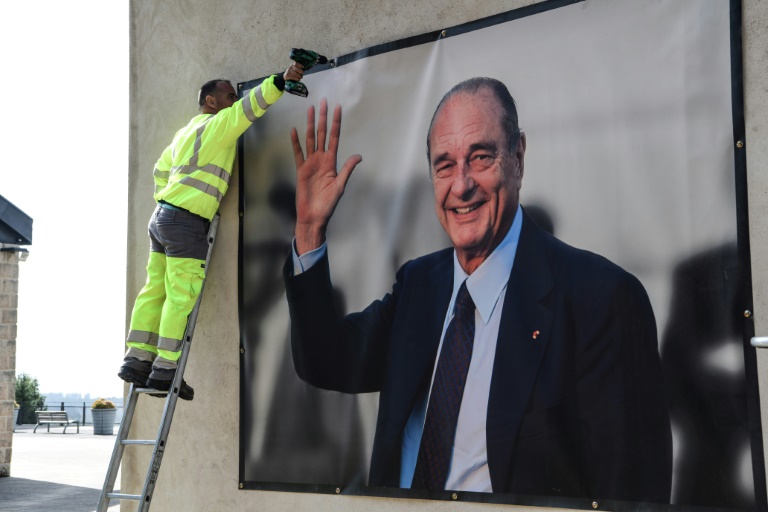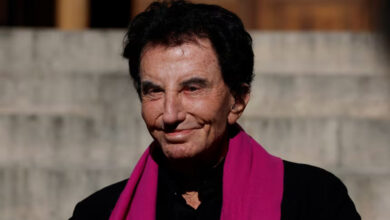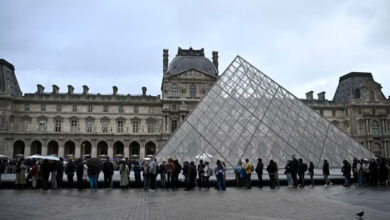
Mourners lined up at France’s presidential palace to pay their respects on Friday to former head of state Jacques Chirac, whose death sparked tributes to a complex but charismatic giant of French politics.
Chirac, president from 1995 to 2007, died on Thursday aged 86 after a long period of ill health, with President Emmanuel Macron in an address to the nation praising “a man whom we loved as much as he loved us”.
Ahead of a national day of mourning announced for Monday, the French presidency threw open the doors of the Elysee Palace for anyone wanting to sign a book of condolences.
Chirac is also to be given the honor of a public memorial ceremony on Sunday, a mass on Monday, and a minute of silence at public institutions, schools and football matches.
Even his opponents hailed his charm and qualities as a political fighter, as well as how he stood up to Washington in 2003 by opposing the Iraq war.
Among his achievements are seen as acknowledging France’s responsibility for the wartime deportation of Jews, slashing road deaths with the introduction of speed cameras, and standing up to the increasingly popular far-right under Jean-Marie Le Pen.
But some questioned how much he had actually achieved during a long period in office — his career shadowed by a graft conviction over his stint as Paris mayor.
‘Last of the great presidents’
Hundreds queued on Thursday evening and again Friday afternoon to sign the condolence book at the Elysee, with a long line stretching down the gravel courtyard normally strictly off-limits to the public.
“He had a presence, he was charismatic — which later presidents are not,” said Frenchman Pierre-Yves as he waited to sign the book overnight.
“Jacques Chirac was the politician of my childhood,” recalled Marion.
“I express my admiration and tenderness for the last of the great presidents,” read one tribute. “Thank you for fighting, thank you for this freedom and good spirits.
A ceremony for members of the public will be held Sunday at the Invalides memorial complex in Paris, the Elysee and Chirac’s family announced.
This will be followed by a day of national mourning on Monday when a commemorative service will be held at the Saint Sulpice church in central Paris.
The former prime minister, mayor of Paris and president will then be buried in the Montparnasse cemetery in a strictly private ceremony, Chirac’s son-in-law Frederic Salat-Baroux told AFP.
Survived by his wife of over six decades Bernadette, he will be buried next to his daughter Laurence, who died in 2016.
The government spokeswoman Sibeth Ndiaye said a minute of silence would be observed in public institutions and schools at 1300 GMT on Monday.
A minute of silence will also precede all football matches in France — amateur and professional — in homage to Chirac, who was president when the country memorably claimed the World Cup in 1998, the football federation said.
The Eiffel Tower switched off its lights late Thursday in homage.
‘Embodied France’
The center-right Chirac succeeded his long-time political rival, the Socialist Francois Mitterrand, in 1995 after two previously unsuccessful bids to secure the Elysee.
His reputation was tarnished by a 2011 conviction for graft dating to his time as mayor of Paris from 1977 to 1995, although it did not cause a major dent in his popularity.
The beer-loving charmer, whose extramarital affairs were an open secret, had barely been seen in public in recent years. He suffered a stroke in 2005 and underwent kidney surgery in December 2013.
Chirac had always extolled his love of France and its modern leaders paid tribute above all to a man who had represented the values and symbols of his country.
“As a leader who was able to represent the nation in its diversity and complexity… president Chirac embodied a certain idea of France,” said Macron, recalling how Chirac had himself paid an eloquent tribute to his old foe Mitterrand when he died in 1996.
Macron praised Chirac in particular for refusing to take France to war in 2003 in the US-led invasion of Iraq without a UN mandate, saying that under him France was “capable of rising up against an unjustified military intervention.”
Even international counterparts who disagreed with Chirac were impressed by the knowledge and intellect of a man with a deep passion for Asian culture who would found the acclaimed Quai Branly museum of indigenous art in Paris.
Chinese President Xi Jinping was the latest world leader to pay tribute to Chirac, describing him as “an old friend of the Chinese people”.
Image: AFP / Agnes GAUDIN The centre-right Chirac finally succeeded his long-time political rival, the Socialist Francois Mitterrand, in 1995 after two previously unsuccessful bids to secure the Elysee




